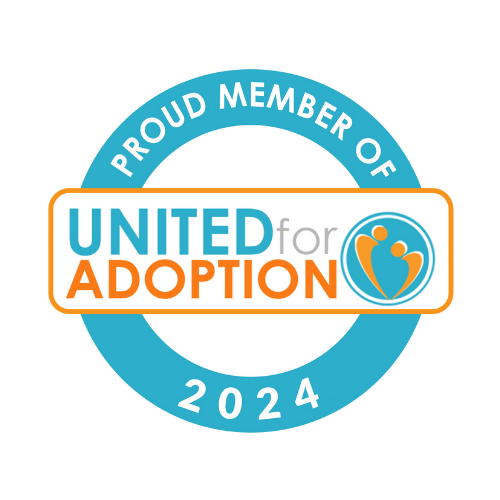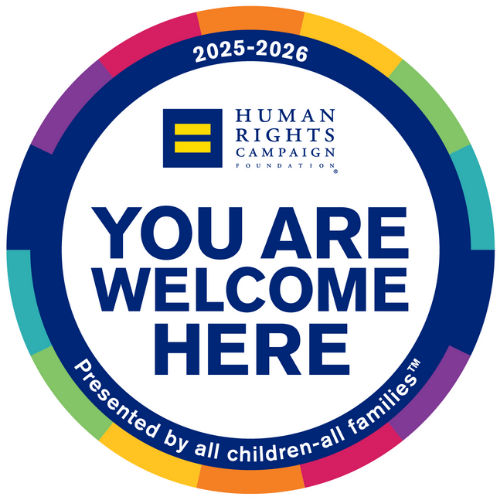Utah Foster Care’s Annual Symposium proved once again to be a form of community respite for foster parents. Through trauma-informed research, the forum created deepening perspectives into the everyday experiences of children and foster families.
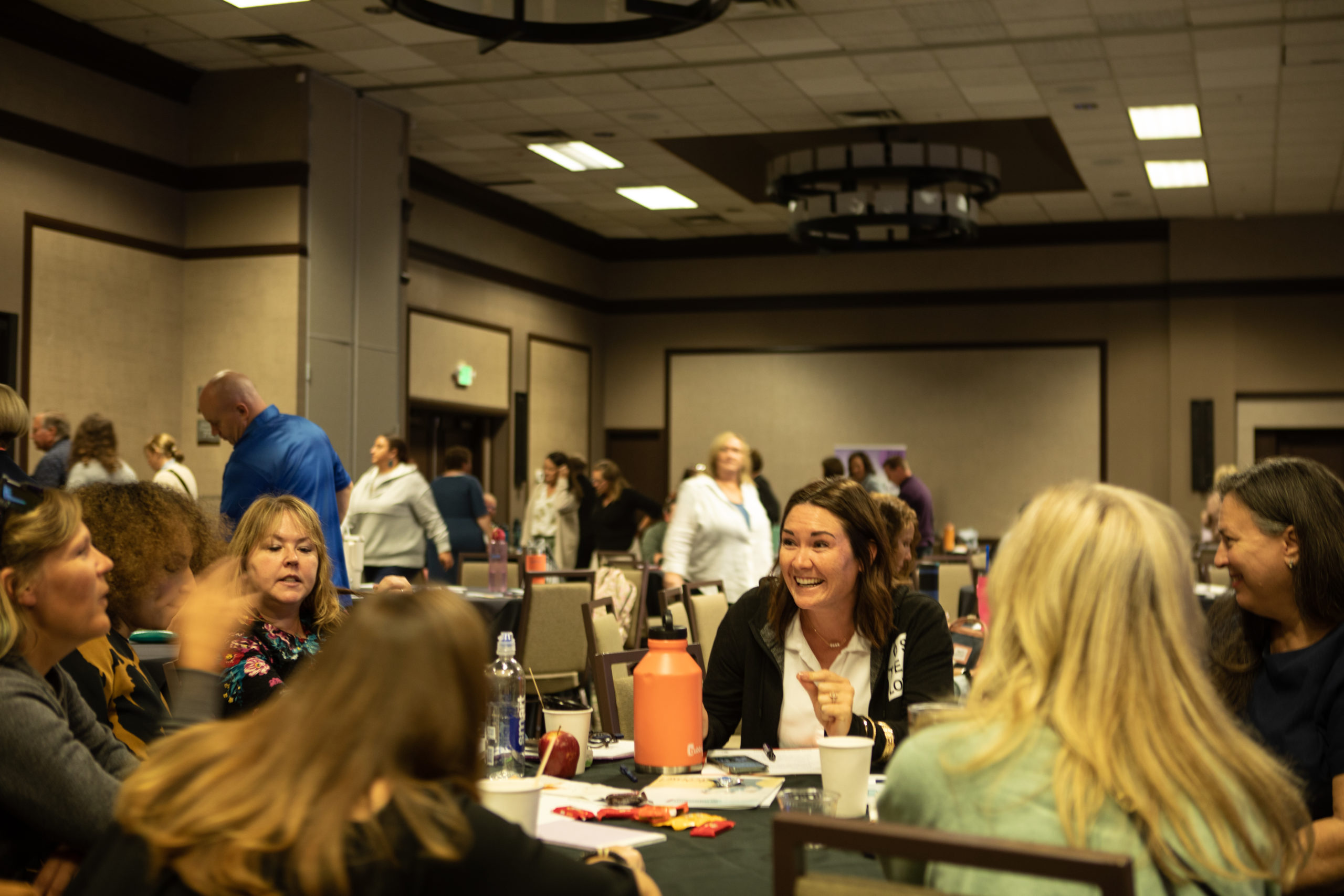
Chronic Fight or Flight
Before an audience of some 250 foster parents and child welfare professionals, Dr. George S. Thompson explained how trauma affects the brain – how a child’s unconscious sense of safety or danger impacts their emotions and behaviors.
That trauma can trigger a chronic “fight or flight” response, even when children are placed in safe, loving foster homes.
“If the nervous system is focused on danger, we can’t problem solve,” says Dr. Thompson.
As co-author of Polyvagal Theory and the Developing Child, Dr. Thompson highlighted how caregivers can recognize that response and change their actions to help build relationships with children and teens in their care.
That theory is key in understanding parenting strategies for children who have experienced trauma. Basically, when children haven’t had safe relationships, their ability to love, trust and thrive is damaged. Listen to Dr. Thompson’s presentation on Utah Foster Care’s Fostering Conversations podcast.
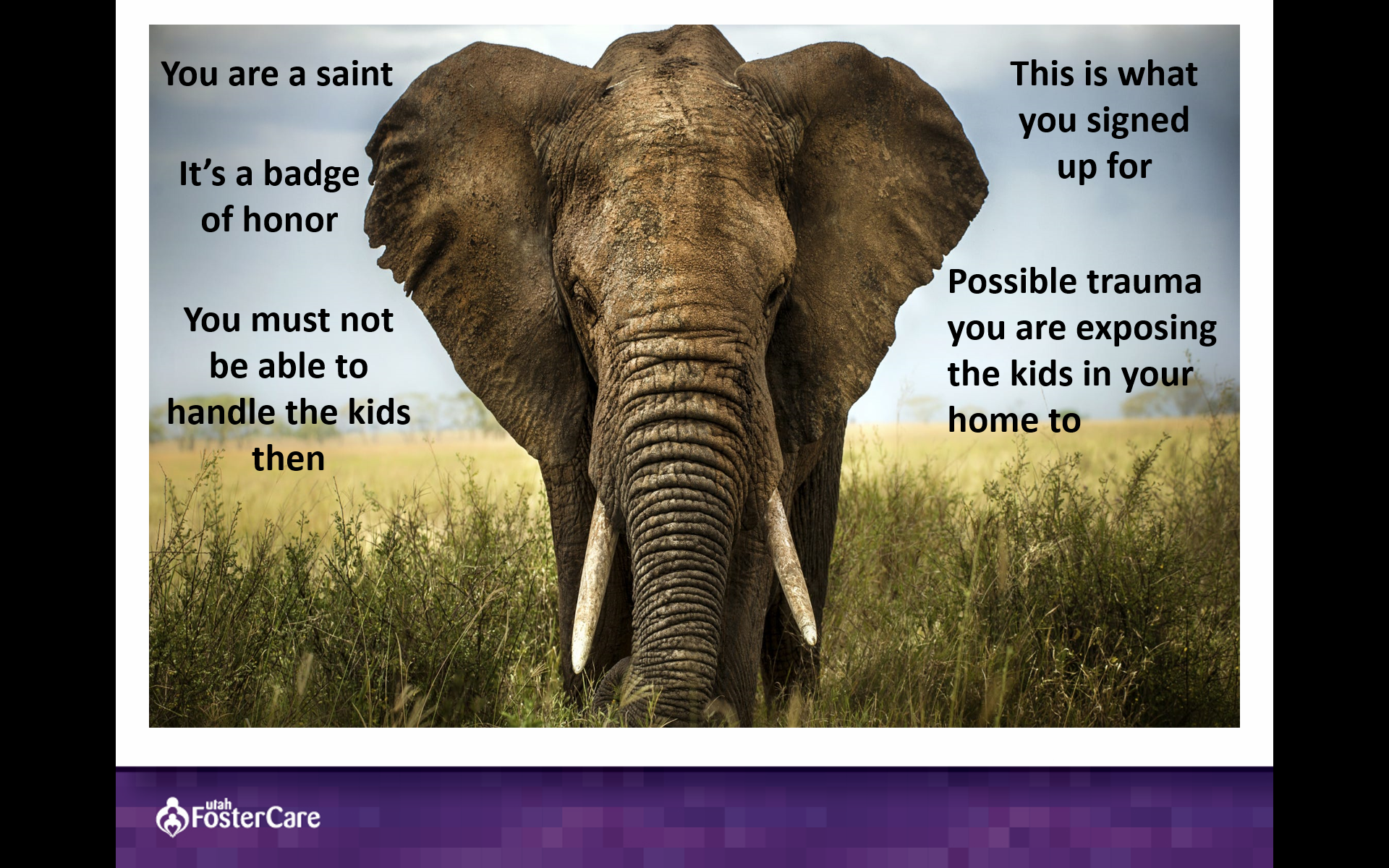
Secondary Trauma
Secondary traumatic stress is the emotional duress that results when an individual hears about the firsthand trauma experiences of another. UFC’s Amy Bates, a longtime foster parent herself, outlined some of the ways to recognize the symptoms:
- Hypervigilance
- Minimizing
- Inability to empathize or numbing
- Addiction issues
Amy says it helps to talk to your foster parent support group or your regional UFC Retention Specialist, who can direct you to support services.
Trauma-Responsive Systems
State Senator Luz Escamilla explored the role of poverty, race, and ethnicity in community trauma. And state leaders in education, juvenile justice and the Division of Child and Family Services (DCFS) updated the ways they are creating trauma-responsive systems of care for children in foster care.
Thank you for learning with us!
Each year we look forward to gathering in person to learn, and this year, deepen our perspectives and community. A room full of passionate, caring, trauma-informed individuals offers hope for the future of Utah’s vulnerable children. Thank you for joining us! We look forward to seeing you next year!
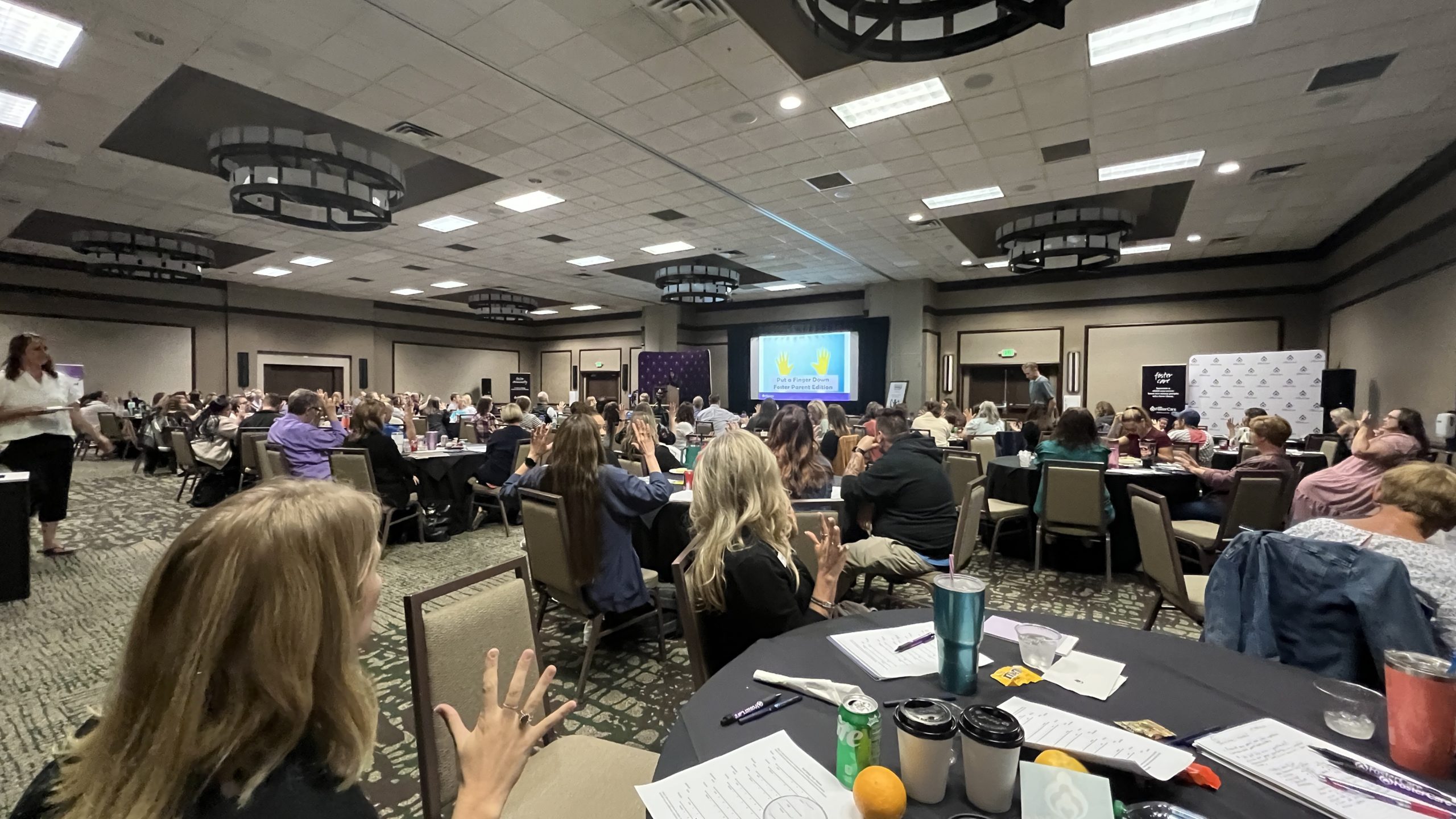
Questions about foster parenting in Utah?
We have a team of people near you who can answer them!




